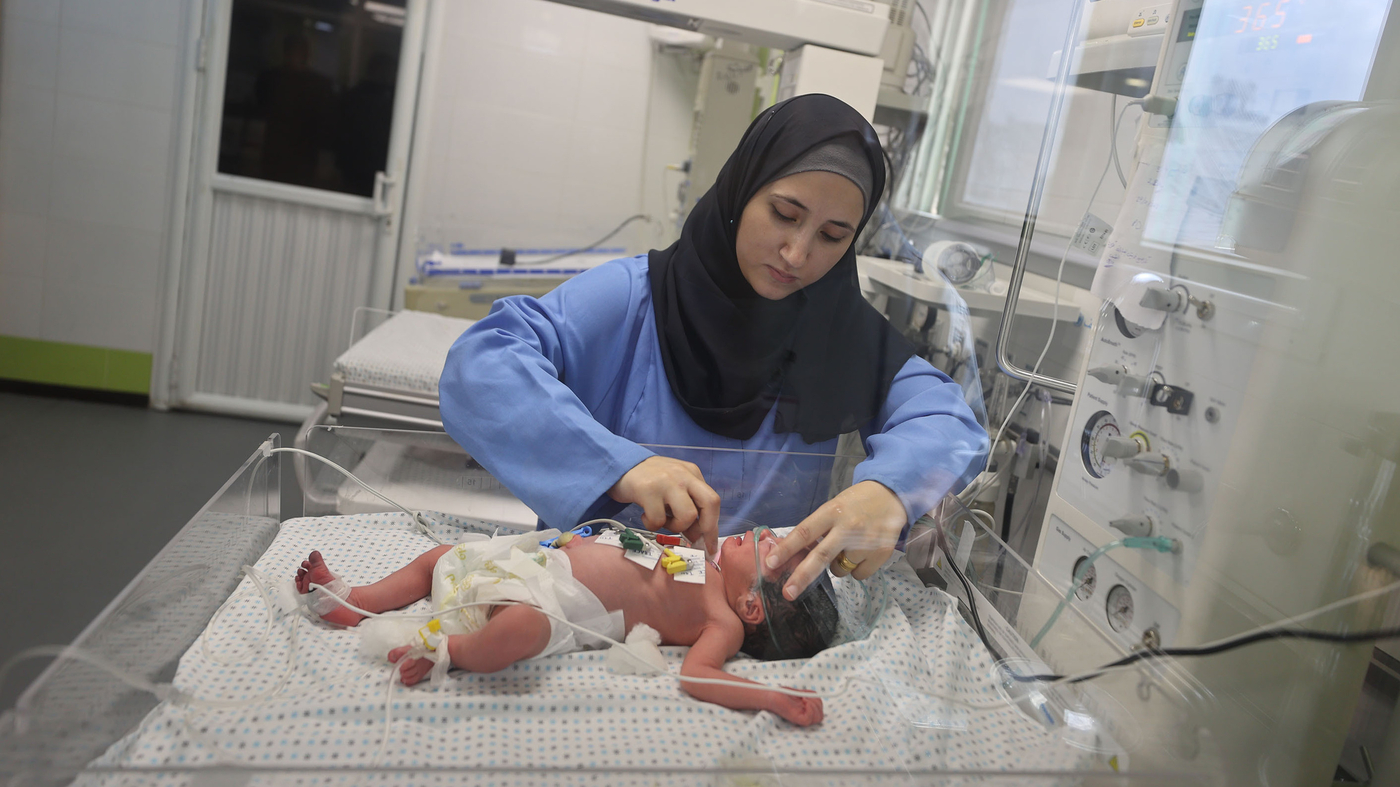KAHN YUNIS, Gaza — Raneem Hejazi was eight months pregnant, sleeping in an aunt’s apartment with her husband, mother-in-law and other members of her extended family, when the building was hit by an Israeli airstrike. Seven members of the family were killed.
Raneem’s arm was crushed and her legs were broken and badly burned, but she was alive. She told her husband, Asad, to leave her to die. But somehow they pulled her out from the rubble. An ambulance rushed her to the Nasser Hospital in the city of Kahn Yunis, in southern Gaza.
The hospital was crowded and chaotic when she arrived. The baby had to be delivered if there was any hope it would survive. Even though the hospital had no electricity, Dr. Mohammad Qandeel decided they needed to do an emergency cesarean section.
Cell phones illuminated the operating table while the medical team worked, Dr. Qandeel says. “We have no water – I don’t have water to wash my hands,” he recalls. There were also no antibiotics to fight infections.
On a day with so much death a baby girl was born. They named her Mariam – after her husband’s sister – one of the family members who died in the airstrikes.
Daily births amid destruction and death
Dr. Qandeel says Raneem’s story is – tragically – not unique. In fact, Raneem’s emergency C-section was one of two that night at Nasser Hospital. “The babies are ok – thank God – and the mothers are in the ICU facing severe devastating injuries,” he says. They aren’t equipped to properly care for the women at the hospital, given the lack of resources, so they are trying to facilitate their transfer to Egypt. “If they stay in the ICU without evacuation they will also face death soon.”
“We have hundreds of severely injured patients, 70% of them are women and children,” he says. Hospital staff are often working without electricity or water. “Every day is horrible,” he says.
Even for pregnant women who aren’t injured, the situation in Gaza is horrific, says Dominic Allen,…
Read the full article here

Leave a Reply